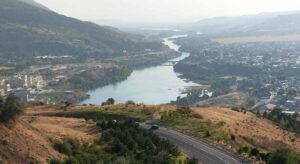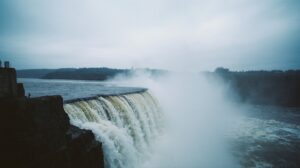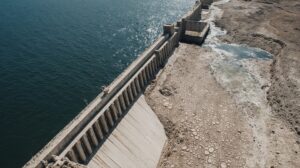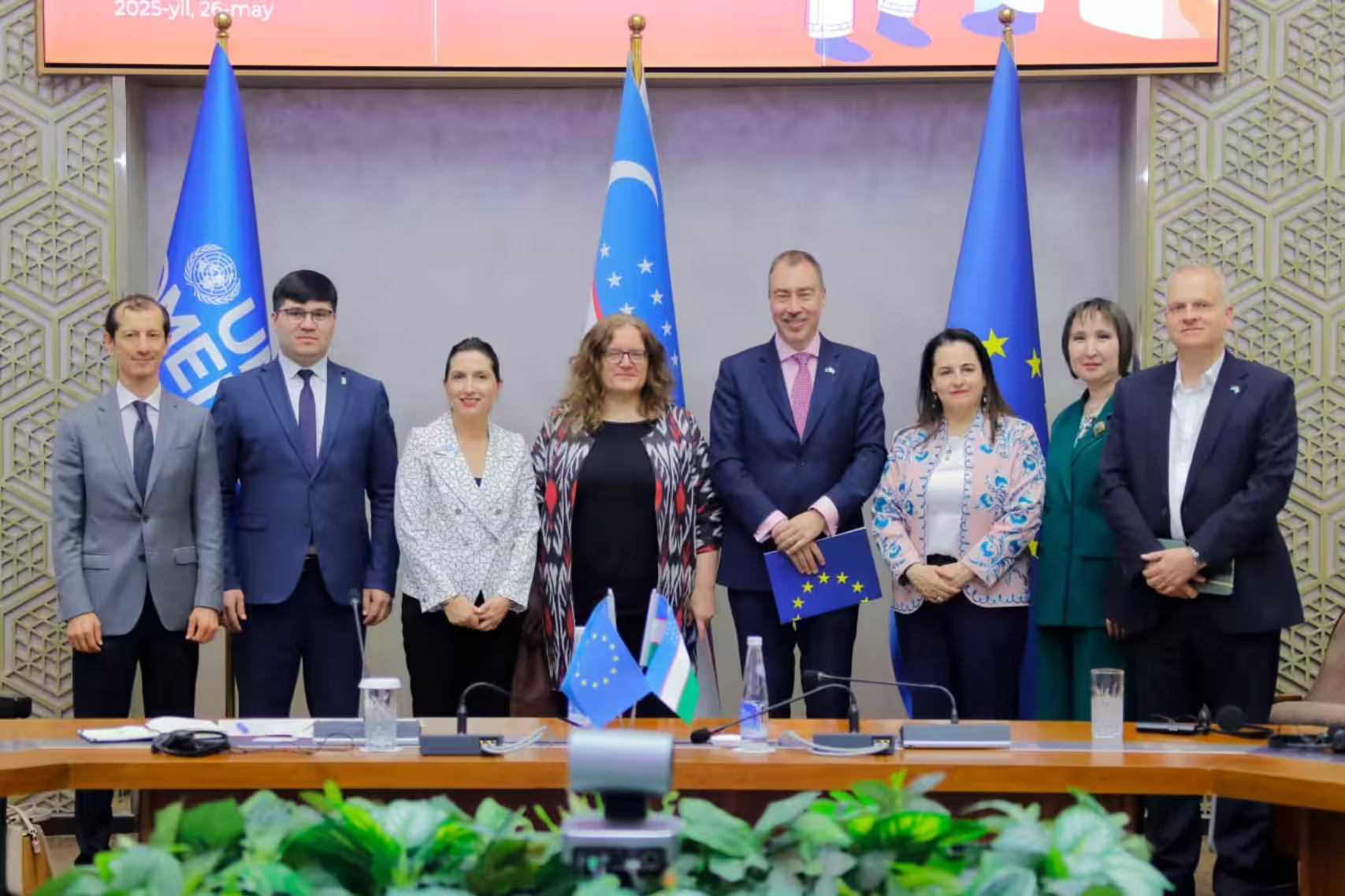Uzbekistan continues to implement a large-scale program to increase the share of renewable energy sources in the national energy balance, where hydropower occupies one of the priority places. As part of this strategy, the joint-stock company «Uzbekhydroenergo» is building the Nizhne-Chatkal hydroelectric power station on the Chatkal River in the Bostanlyk district of the Tashkent region. Media representatives were able to learn about the progress of work on this investment project, approved by a resolution of the Cabinet of Ministers of Uzbekistan dated January 31, 2020, during a press tour organized by the company on May 23.
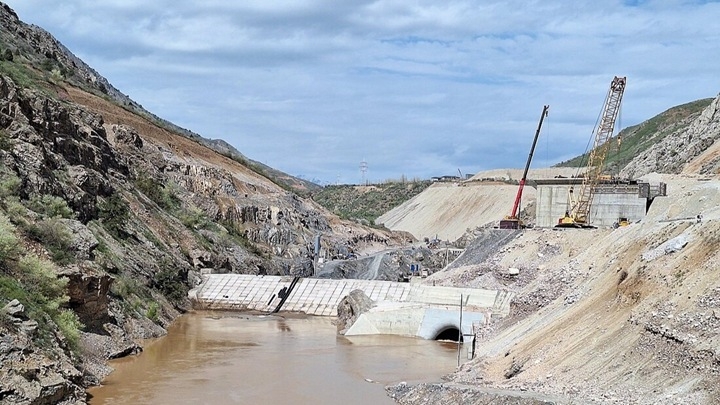
According to the design data presented by «Uzbekhydroenergo», the future hydroelectric power station will be equipped with four hydraulic units with a capacity of 22.5 MW each. This will bring the total installed capacity of the plant to 90 MW, and the estimated annual electricity generation will be 300 million kilowatt-hours. The company calculated that this volume will be enough to supply energy to up to 125 thousand households. The launch of the station is said to save significant amounts of fossil fuel annually: about 81 million cubic meters of natural gas or 250 thousand tons of coal.
The key feature of the project, according to «Uzbekhydroenergo», is the use of advanced technology for the construction of a compacted rolled concrete (RCC) dam. It is alleged that this technology is being used for the first time not only in Uzbekistan, but also in Central Asia. The dam, 60 meters high, 270 meters long and 7.5 meters wide, will create a reservoir with a volume of 6.8 million cubic meters. The use of RCC technology, according to assurances, reduces the project implementation time by half due to the high strength of concrete, its low water permeability and the possibility of mechanized laying. The design documentation is being developed by JSC «Gidroproekt» with the participation of engineering companies from Turkey and Iran. Modern equipment is involved in the construction, including equipment from the German company GERTEK for automated supply of cement mortar.
Representatives «of Uzbekhydroenergo» assure that the station is designed in such a way as to minimize the impact on the aquatic ecosystem, not disrupt the hydrological regime and not negatively affect the state of the environment. However, the construction of large hydroelectric power plants, especially those involving the creation of reservoirs, traditionally raises serious questions among environmentalists and experts regarding the long-term consequences. Such projects can lead to changes in river beds, reduced biodiversity, land flooding and affect water quality. Assessing the real environmental impact of the Nizhne-Chatkal hydroelectric power station will certainly require long-term and careful monitoring after the facility is put into operation, since the environmental consequences are not always obvious at the design and construction stage.
«Uzbekhydroenergo» also reports other technological innovations: to increase the water resistance of the dam, a cementation curtain is being formed, and the construction of a tunnel more than 650 meters long has been completed. The excavated materials are recycled on site and used to produce RCC concrete in-house. For the first time in Uzbekistan, particularly durable M800 concrete is used in the flushing gallery of the structure, and its bottom part is lined with wear-resistant metal slabs. Quality control of the work is carried out using equipment from the Italian company MATEST, and the supply of concrete is carried out by a modern belt conveyor system – technology used only in a few countries around the world, including the USA, Canada, Italy, Iran and now Uzbekistan. It is emphasized that up to 90% of components and technological equipment for hydroelectric power stations are supplied by domestic enterprises that are part of the structure «Uzbekhydroenergo».
The commissioning of the Nizhne-Chatkal hydroelectric power station is scheduled for the celebration of Independence Day of the Republic of Uzbekistan — September 1.
Alexander Eskendirov (Rivers.Help!)
